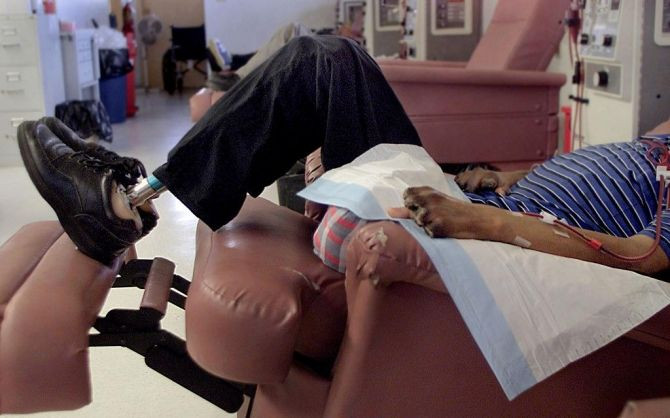For-Profit Centers Less Likely to Suggest Kidney Transplants

A new study suggests for-profit dialysis centers are under economic pressure in some cases to keep patients on dialysis instead of suggesting a kidney transplant.
Researchers from Johns Hopkins University say for-profit dialysis centers are 20 percent less likely to tell people with kidney disease about potentially lifesaving transplant options compared to those at nonprofit centers.
The study was published in the American Journal of Transplantation.
“Transplantation is not for everyone, but it is important that every dialysis patient be assessed and informed about the risks and benefits of getting a transplant,” says the study’s lead author author Dorry L. Segev, M.D., Ph.D.
Segev is an associate professor of surgery at the Johns Hopkins University School of Medicine.
“For many patients, transplant is a more effective, life-extending and less costly treatment modality than dialysis. But in order to be transplanted, you need to be referred by your dialysis center and in many cases that just isn’t happening,” Segev said.
Patients who are either older, obese, uninsured, or on Medicaid are also less likely know all their options, researchers said in the study. Fifty- three percent of all the uninformed patients are also less likely to be on the waiting list to receive a kidney from a living donor.
Study Methodology
The study examined the Centers for Medicare and Medicaid Services Form 2728 which was recently altered to require transplant education. The modified rules exist to encourage physicians to evaluate and consider every patient for transplantation.
The form asks nephrologists if they have informed patients about transplant options, and if they haven’t, to select a reason.
Researchers examined the data from 236,079 adults in the United States who developed end-stage kidney disease between Jan. 1, 2005 and Sept. 24, 2007 from the United States Renal Data System and discovered that more than 30 percent of the patients had not been told of their option for transplantation, at the time the form was completed.
Patients Not Told
The collected data also show that the main reason that more than a third of patients were uninformed was because they were not yet assessed for being a candidate for transplant. This statistic suggests that the economic pressures placed on the centers to keep patients on dialysis could be pushing the disparity, Segev said in a statement.
Another reason could be that for-profit centers are also less likely to be associated with transplant hospitals, and several of the for-profit centers lack staff specializing in transplant education.
“Given long waiting times and high death rates on dialysis, a delay in kidney transplant education for appropriate candidates leads to later referral and likely worse outcomes,” says Lauren M. Kucirka, Sc.M., a Johns Hopkins epidemiologist who co-authored the study.
Transplantation for patients who meet the requirements is a far less expensive therapy in the long run, in addition it leads to an improved quality of life, Segev said, which is why law makers should deliberate ways to ensure that there are incentives for assessing all patients for possible transplant.



























